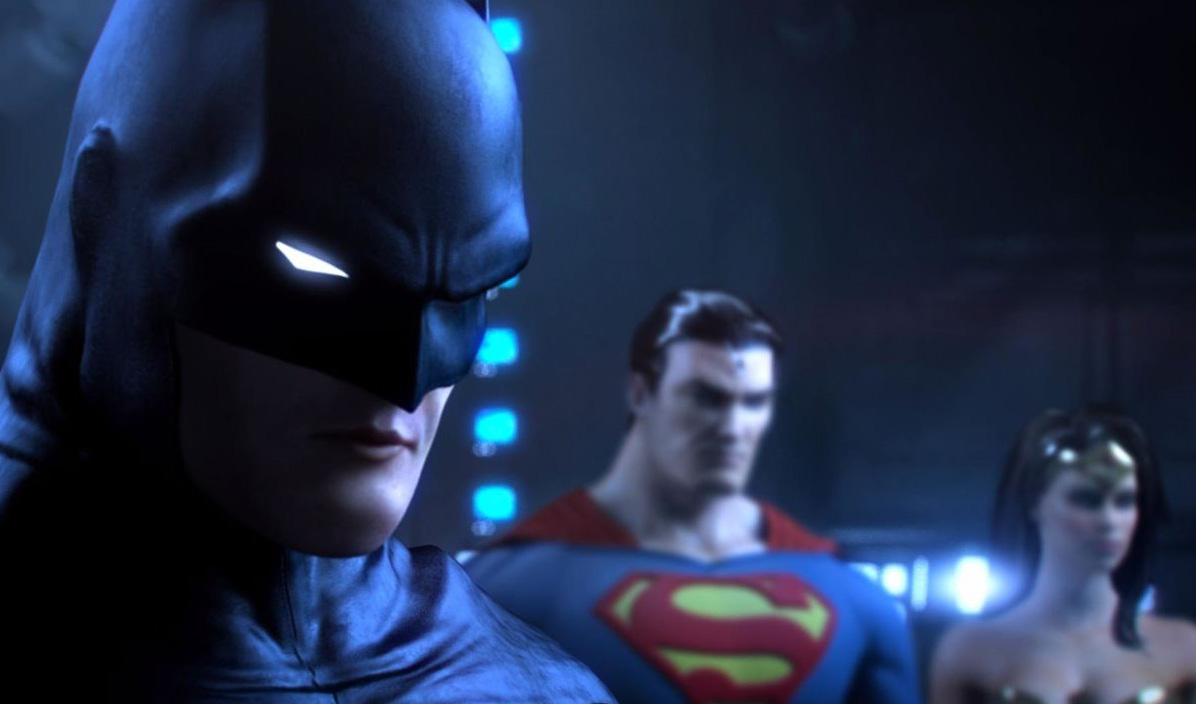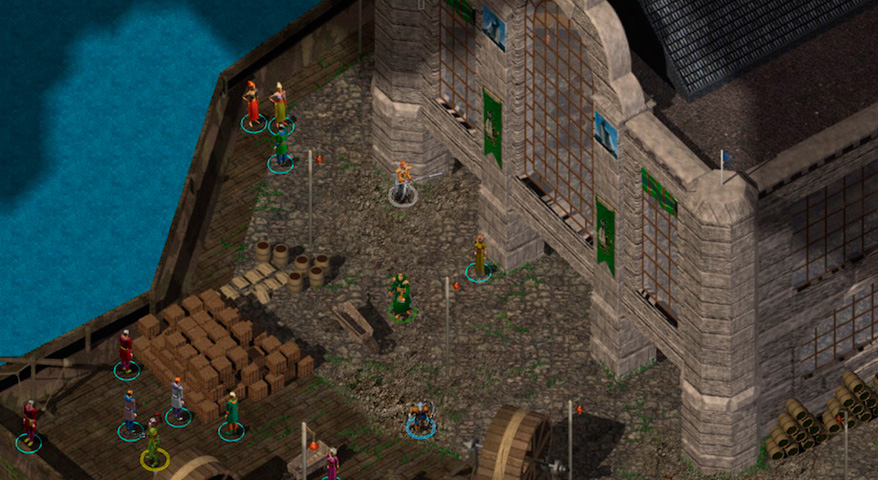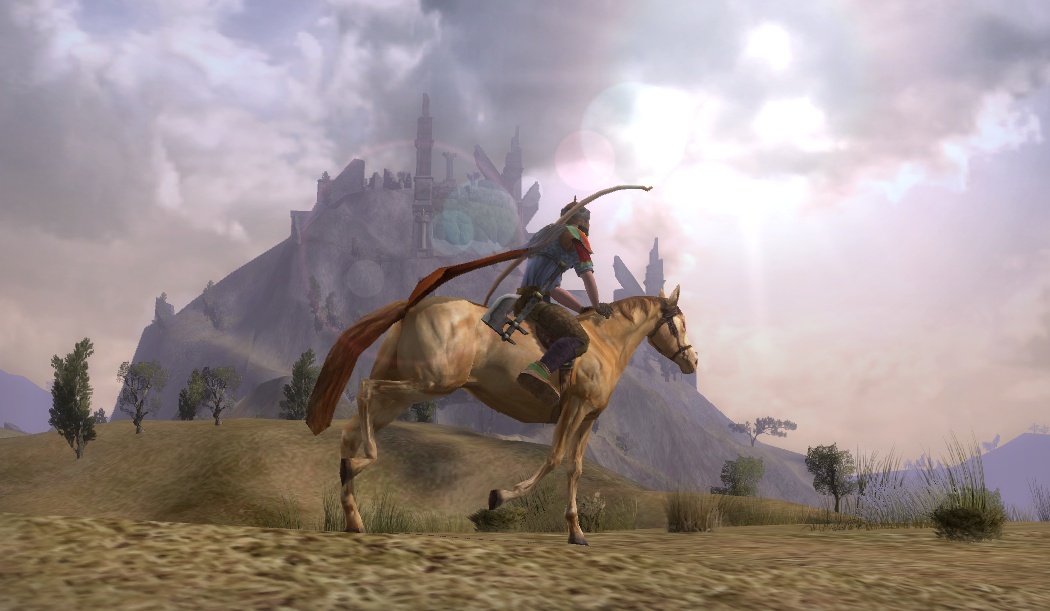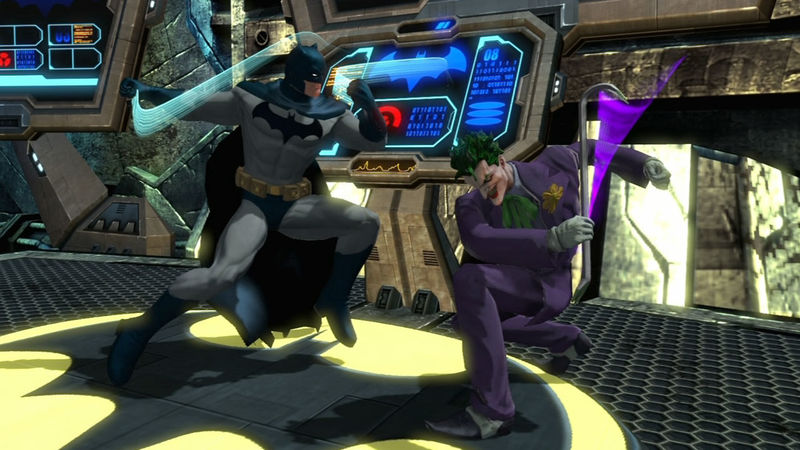Why you should never meet your heroes (in a game)
They never live up to our expectations.

All my friends wanted to kill Drizzt Do’Urden and take his magic swords.
Baldur’s Gate was one of those games everyone played simultaneously, showing up to school the next day full of stories about what they’d discovered in their explorations of the Forgotten Realms. They all eventually met Drizzt, the hero of a series of Dungeons & Dragons novels popular with the kind of teenager who loves angsty outcast loners who stab the deserving. In Baldur’s Gate, Drizzt can be found near Beregost where a gang of gnolls—the evil hyena-people of D&D—ambush him, and he turns to you for help.
He obviously doesn’t need that help, because he’s a recognizable named character being attacked by anonymous beastmen. He is in danger, however, because of the nature of players, who are a threat far more devious than any gnolls.
There are dozens of forum threads and YouTube tutorials explaining how to kill Drizzt and arguing over which is the best technique. Some try to get a precise distance away so that the gnolls’ AI is triggered and they attack Drizzt before his own AI activates and he can retaliate. Others surround him with their own party members, then dismiss those party members so they stand on the spot like statues forming a perfect cage, making it easy to pepper him with arrows for the hour or so it takes to chip away all of his hit points. Others have schemes involving invisibility, backstabs, summoning spells, drinking all of your potions at once, or finding a way to attack him from a nearby island.

Sure, they want to loot his corpse so they can have his fancy magic gear, and for some it’s a way of adding an additional tangle of challenge to a game that probably doesn’t need to be any harder, but it goes beyond that. Even as kids, people just want to see Drizzt dead [1].
In games that let us play new characters in established fictional settings, characters who aren’t the heroes of the original stories, we resent the appearance of the real stars. When they appear we feel like we’ve been demoted. They’re inevitably more powerful than we are, but it’s more than that. They feel more central to the setting. It’s hard not to feel like the character you’re inhabiting, whether it’s one you were handed or created yourself, is thin and half-finished compared to the stars of the show with years of continuity behind them. I am very attached to my hobbit minstrel in The Lord Of The Rings Online but when he bumps into Frodo and friends being pursued by the Black Riders he can’t help but seem inconsequential and a bit silly [2]. (It probably doesn’t help that I named him Spagbol Harfoot.)

You can see why creators often shoehorn the original characters into games where they aren’t playable. They’re worried that the settings won’t be able to sell the game on their own, that fans will be as perplexed by their absence as they were by that Bourne movie without Jason Bourne in it. But fans are actually much more likely to be angered by these iconic characters showing up without living up to their potential.
Keep up to date with the most important stories and the best deals, as picked by the PC Gamer team.
At the climax of Shadowrun Returns one of the Shadowrun RPG’s most recognizable characters appears, an immortal elf named Harlequin. Rather than saving the day on his own he asks for your help, and under your control in the ensuing battle feels like he’s near your own power level rather than being so far beyond that he can’t even be represented numerically as the tabletop game insisted. Fans were disappointed to be given control of the flash bastard only to see him miss attack rolls like some kind of ordinary pleb. We don’t want our heroes to be too powerful, but we’re just as annoyed when they’re not badass enough.
The easiest solution is steer clear of the original fiction’s protagonists entirely, making use of secondary characters instead. You can have Mon Mothma deliver the mission briefings in a Star Wars game without anyone fussing over whether her stats are accurate, but more importantly secondary characters provide opportunities for new characters to interact with them in ways that mirror the source material. Shadow Of Mordor only really starts to feel like it’s a Middle-Earth game when you’re given the opportunity to re-enact those scenes where someone tries to get information out of Gollum while he wheedles and coughs. The Walking Dead lets you interact with familiar survivors like Hershel Greene and Glenn the pizza guy in ways that differ from how Rick Grimes does, which gives both the game, and its star Lee, an identity that’s at once familiar but different.

While meeting our heroes never works out well, there’s a lot more potential in meeting the villains—being able to measure ourselves against bad guys we know and love to hate, seeing whether we can survive against Darth Vader or a Xenomorph. It also saves time that would otherwise be wasted setting up a new opponent who has to be inserted into the setting without seeming redundant or ineffectual. An existing villain brings all their threat and menace with them. All you have to do is namedrop the Joker to have players worried about having to face him.
Of course, that can go badly too. When you face the Joker in his Amusement Mile murder circus in DC Universe Online you do so knowing that Batman will be fighting alongside you the entire time, which takes the oomph out of the moment. You’re given things to do like breaking the Joker’s gadgets when he uses them to set off toxic gas bombs or electrocute Batman, then you fight his clown goons when they inevitably burst out of the giant gift-boxes surrounding the fight, but it’s a condescending attempt at making you feel involved. You’re sitting at the superhero equivalent of the kiddie table.
At the end of the battle the Joker escapes because of course he does, the Bat in pursuit while you untie Commissioner Gordon and clean up the mess. It’s another perfect example of the hero showing up to overshadow our new character, making us seem second-class. If anyone can find a good tutorial out there explaining how to kill Batman and take his Batarangs, let me know.
[1] Elminster doesn’t fare much better. In the Forgotten Realms novels and sourcebooks he’s an immensely powerful wizard and all-purpose deus ex machina, and in Baldur’s Gate his main job is to say enigmatic things and vanish. He’s a divisive character. Elminster is programmed to be able to teleport away before he suffers enough damage to die, but people on the internet have been able to kill him as well because of course they have.
[2] At another point in The Lord Of The Rings Online you and several other hobbits are mistaken for the more famous ones and captured. Aragorn arrives to free you, though only because he thinks one of the other prisoners (who is named Mundo, poor guy) might be Frodo. It’s bad enough when the real hero has to save your pudgy butt, but when he’s only doing it because you happen to be in a cell next to someone who resembles a character more important than you, it doesn’t do a lot for your self-esteem. Thanks, Aragorn. At least Drizzt asks you for help rescuing him rather than vice versa.

Jody's first computer was a Commodore 64, so he remembers having to use a code wheel to play Pool of Radiance. A former music journalist who interviewed everyone from Giorgio Moroder to Trent Reznor, Jody also co-hosted Australia's first radio show about videogames, Zed Games. He's written for Rock Paper Shotgun, The Big Issue, GamesRadar, Zam, Glixel, Five Out of Ten Magazine, and Playboy.com, whose cheques with the bunny logo made for fun conversations at the bank. Jody's first article for PC Gamer was about the audio of Alien Isolation, published in 2015, and since then he's written about why Silent Hill belongs on PC, why Recettear: An Item Shop's Tale is the best fantasy shopkeeper tycoon game, and how weird Lost Ark can get. Jody edited PC Gamer Indie from 2017 to 2018, and he eventually lived up to his promise to play every Warhammer videogame.

